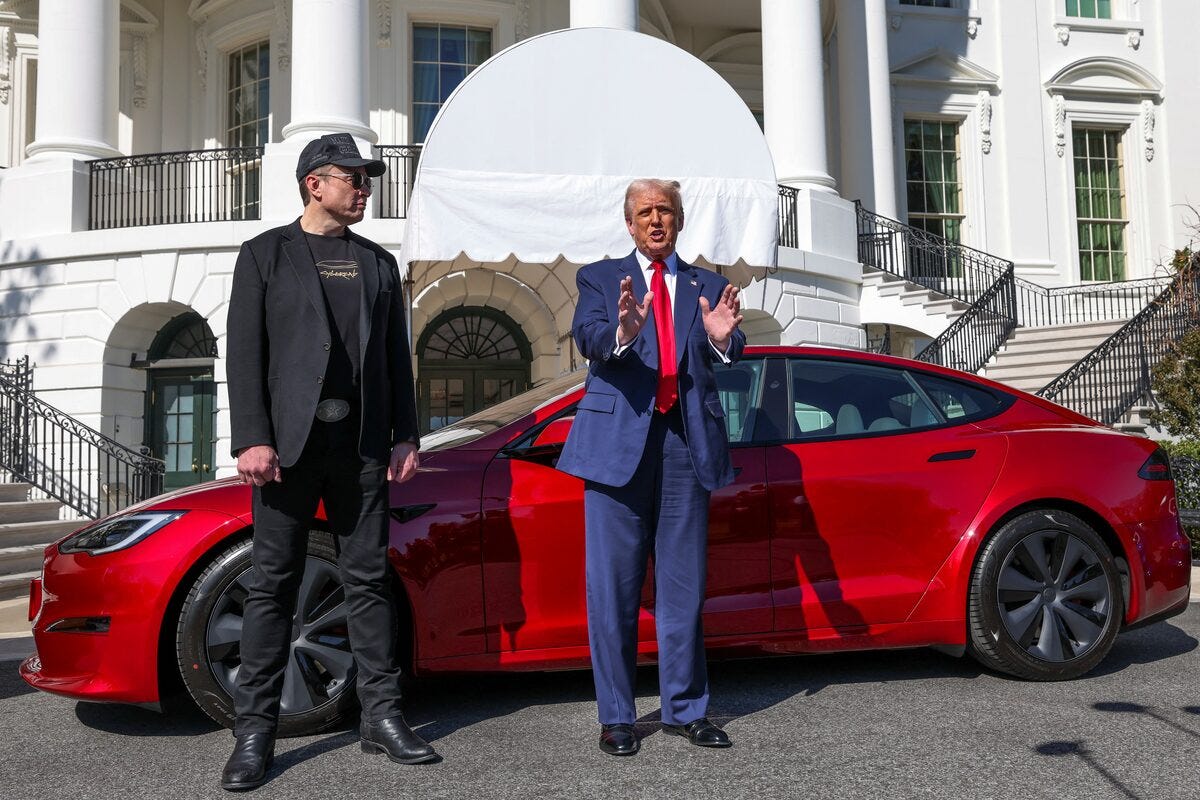It always ends this way.
Not with a governing philosophy. Not with a plan.
With a red Tesla parked outside the White House and a Starlink dish nobody remembers how to uninstall.
That’s what remains of Trump and Musk’s Department of Government Efficiency, or DOGE — the agency that was supposed to save America from its own bureaucracy by, well, blowing it up.
Now the bromance has ended. Musk is gone. DOGE is leaderless. The question is not whether the project will succeed. It is whether it will quietly fade before anyone remembers to update its website.
The spectacle began, as these things do, with the promise of greatness.
A trillion dollars in savings. A lean, mean federal machine. Entire agencies trimmed like startup org charts.
And for a time, it almost looked real. Musk, the world’s richest man, was officially a “special government employee.” Chainsaw metaphors were used without irony. Federal workers were fired by the tens of thousands.
It was governance by meme.
And it worked — until Musk decided he didn’t like Trump’s tax bill. The fight escalated fast: public insults, deleted posts, threats over government contracts.
By the end, the Tesla stayed, the Starlink stayed, and Musk himself was gone.
So was the illusion.
Now, Trump says DOGE will march on. Without Musk. Without much of anything, really.
Russ Vought, an old hand at bureaucratic warfare, is now carrying the torch. Or at least holding it carefully enough not to get burned.
Vought helped write Project 2025, the Heritage Foundation’s vision of a presidency that bends or breaks the administrative state. He understands that the war on bureaucracy is most effective when waged from the shadows.
So the official line is clear: no new DOGE leader. No more headlines. The consultants and political appointees embedded in the agencies will quietly continue their work.
Efficiency has been rebranded as discretion.
Of course, the numbers never added up.
Musk promised $1 trillion in cuts. DOGE’s current tally stands at $180 billion — a figure that likely flatters reality.
Even former DOGE engineers have admitted their surprise: the federal government, it turns out, is not a cartoon villain stuffed with easy graft.
Yes, there was waste. There always is. But the promised bonfire of “fraud and abuse” never materialized.
In Musk’s words: “I did not find the federal government to be rife with waste, fraud and abuse.”
A sentence that should have ended DOGE. But didn’t.
Now comes the cleanup.
Federal agencies are rehiring workers. Courts are reversing illegal firings. The same IRS, FDA, and USAID offices once purged by DOGE are now quietly patching holes in their ranks.
Meanwhile, Trump and Republican leaders are trying to salvage the project’s political momentum. The first rescissions package will target familiar enemies — foreign aid, public broadcasting, AIDS programs.
It’s not about efficiency. It’s about theater.
And theater, unlike bureaucracy, requires no maintenance.
What did DOGE reveal?
Not that government is irredeemably corrupt. But that attacking it is easier than governing it.
Not that Silicon Valley can fix the state. But that it is remarkably good at breaking things on the way out.
Tony Judt warned of this long ago: the replacement of moral language with economic logic. The casual erosion of decency. The fantasy of a state run like a business.
Musk played the part to perfection. But the joke wore thin. The state, for all its flaws, cannot be governed by tweet.
Now we are left with the damage. The empty desks. The aging systems. The red Tesla.





